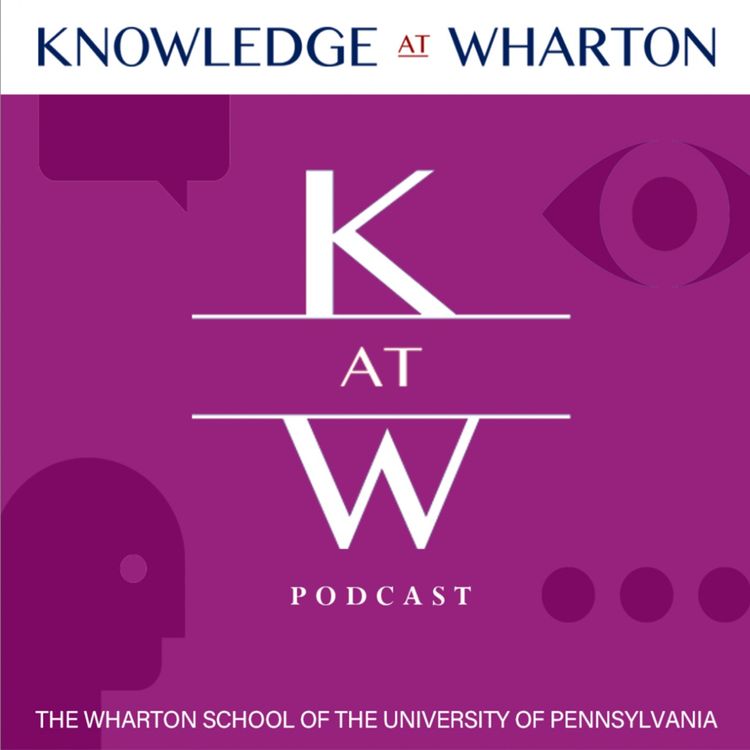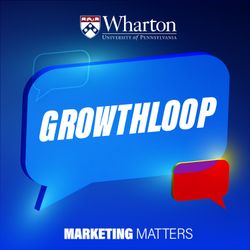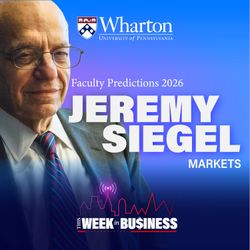Share

Knowledge at Wharton
AI and Wellbeing
Since the launch of ChatGPT in late 2022, Stack Overflow has seen a noticeable drop in daily visits, with traffic decreasing by 1 million — a 15% reduction within just four months. This trend underscores a growing preference for automated solutions, as users increasingly turn to AI for answers, reflecting a shift in how people seek information and interact socially.
In this “AI Horizons” podcast episode, Wharton marketing professor and AI at Wharton co-director Stefano Puntoni joins Gordon Burtch, information systems professor at Boston University’s Questrom School of Business; Julian De Freitas, a business administration professor and director of the Ethical Intelligence Lab at Harvard Business School; and Weiguang Wang, a computer and information systems professor at the University of Rochester’s Simon Business School to discuss the topic.
More episodes
View all episodes

Wharton Marketing Matters: Zillow's VP of Brand and Product Marketing, Beverly Jackson
35:06|Beverly Jackson, Vice President of Brand and Product Marketing at Zillow, joins Barbara & Americus to explain how the company’s two-sided marketplace, consumer-first philosophy, and campaigns like “Someday Starts Today” leverage data, AI-driven tools, and brand storytelling to reduce uncertainty, build trust, and modernize the home buying and renting experience.
Wharton Moneyball: Rethinking Tennis Strategy Through Data and Coachability
01:07:21|Craig O'Shannessy, tennis strategist, analyst for multiple Grand Slams, and New York Times contributor, joins the show to discusses how data-driven decision-making, underused tactics like serve-and-volley, and coachability separate today’s champions from the rest of the field. Cade, Eric, and Shane also analyze Seattle’s defensive-driven win in Super Bowl LX, reassess quarterback ceilings under pressure, and connect those insights to Olympic tournament design and the role of randomness in elite sports outcomes.
Ripple Effect: The State of Leadership in Uncertain Times | Mike Useem
18:46|In this Ripple Effect episode, Wharton management professor Mike Useem explains how leadership has evolved in recent years and how leaders can better handle economic uncertainty, social change, and innovation.
Ripple Effect: Psychology of Love and Relationships in the Digital Age | Pinar Yildirim
14:38|In this Ripple Effect episode, Wharton marketing professor Pinar Yildirim explores what research reveals about modern romance, dating apps, and long-term relationship success in an era of digital connection.
This Week In Business: Why Interest Rates Can’t Fix Deeper Economic Problems
11:21|Patrick T. Harker, former President of the Federal Reserve Bank of Philadelphia and current Wharton Professor of Operations, Information, and Decisions, draws on his experience to discuss why monetary policy has clear limits, the need for political follow-through on fiscal and workforce issues, and how investments in education, skilled trades, and digital innovation are essential for securing the nation’s long-term economic future.
Wharton Marketing Matters: CEO of GrowthLoop, Chris O'Neill
33:30|Chris O’Neill, CEO of GrowthLoop, joins Barbara and Americus to explore how compound marketing, agentic AI, and data-driven experimentation are redefining marketing workflows and customer experiences, using his insights from decades of leadership across technology, data, and brand-driven growth.
Wharton Moneyball: When Analytics Meet Chaos in Football Playoffs
01:11:02|Neil Payne, sports analytics writer and creator of a leading sports Substack, discusses playoff parity, coaching impact, home-field advantage, and how analytics can—and can’t—explain who ultimately wins in today’s NFL and college football postseason. Cade, Eric, Shane & Adi also analyze hockey plus-minus limitations, Grand Slam betting dominance, Baseball Hall of Fame probabilities, and how NIL deals and the transfer portal are transforming competitive balance in college football.
This Week In Business Faculty Prediction Series: Assessing Inflation, Jobs, and Markets Heading Into 2026
10:13|Jeremy Siegel, Wharton Emeritus Professor of Finance and Senior Economist at WisdomTree, shares his perspective on the state of the U.S. economy, analyzing recent rate cuts, inflation progress, employment data, tariff uncertainty, and what they could mean for markets and growth in 2026.
Wharton Marketing Matters: Inside Time’s Best Inventions and Innovation Selection Process
31:20|Emma Barker Bonomo, Editorial Director at Time, joins Barbara & Americus to discuss how the magazine curates its annual Best Inventions list, highlighting the criteria, trends, and global significance behind the most impactful innovations of the year.